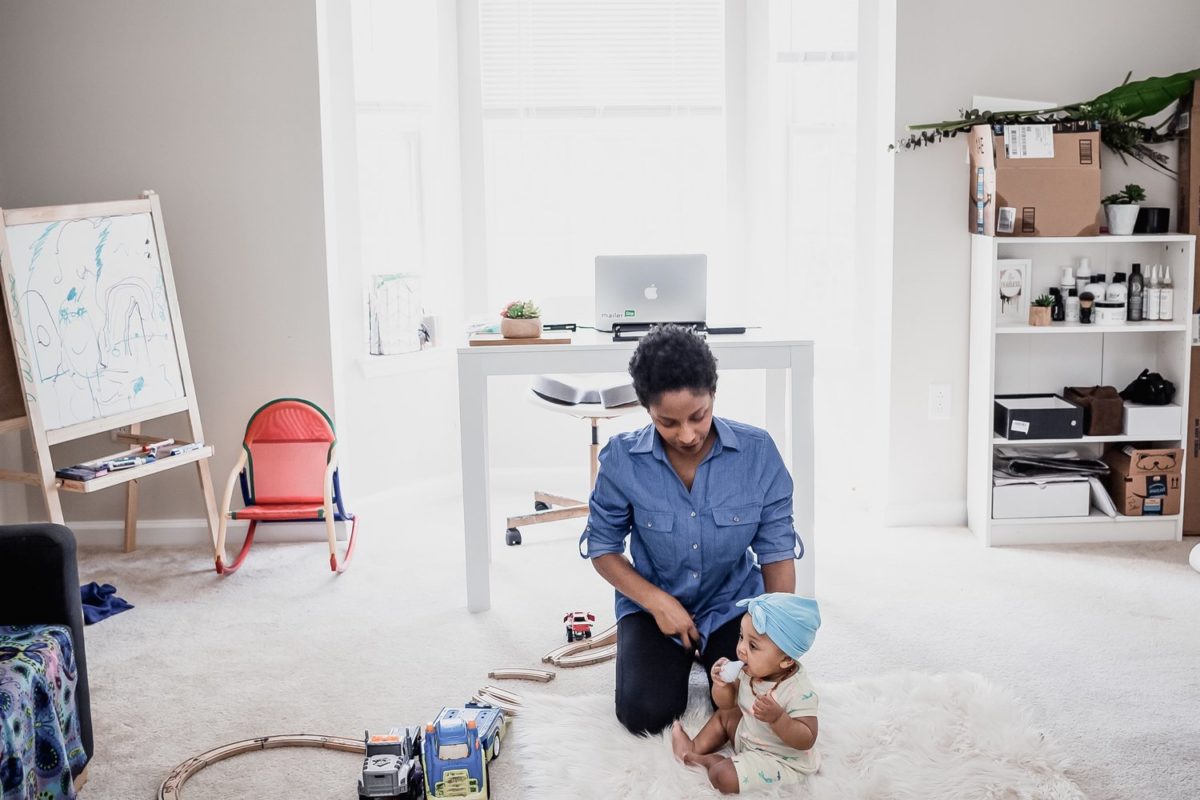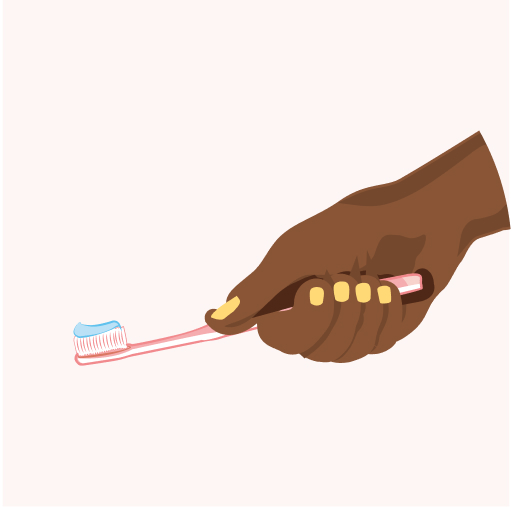
I Had a Birth Plan, and My Labor and Postpartum Experience Were Unexpected
When I found out I was pregnant, I was excited and shocked for multiple reasons. Excited because I was finally going to be a mother, but never in a million years did I imagine that I would become a statistic. As a Black woman, I was familiar with the term Black maternal mortality, but I was not well informed on the issue, and as much as I hate to admit it, I assumed that the risk for pregnancy complications was something that mainly affected women who used public insurance. So when I was literally bleeding my life away in my bathroom, all I remember was asking myself, “how did this happen to me?”
My original birth plan was to have a natural birth, while only requesting to have an epidural to help ease my labor pain. I was so prepared for the natural birth process. I planned for my recovery process and created homemade postpartum pads (aloe vera gel with witch hazel) and even packed essential oils to diffuse in the labor room to help me relax. I was 41 weeks pregnant and my baby was a week late, so my doctor recommended that I get induced the coming weekend.
We trusted our doctor and he confirmed that he would deliver our baby since it was his weekend to work; this made it easy for my husband and I to agree to the plan. After being induced and dilated to 8 cm, I was told that my baby’s heart rate was dropping and in order for our baby to survive, an emergency c-section was necessary. I remember feeling devastated and went into a state of uncontrollable crying. All that kept running through my mind was, “I am not prepared for this type of birth.” However, by the grace of God, I gave birth to a beautiful and healthy baby girl.
Fast forward to a week after giving birth, my mother came to help me and my husband. She understood that I needed rest and offered to take care of my daughter for the night so I could get a good night’s rest. I remember feeling so grateful and excited for my night off, and quickly got ready for bed. As I was lying in bed browsing the internet, I noticed my underwear felt wet. Thinking that my pad must have shifted to cause this, I went to the bathroom to fix it. After sitting on the toilet, I noticed clots of blood were coming out of my vagina uncontrollably. I remember just sitting on the toilet for some time, then eventually called my husband who initially seemed to not be too alarmed by my bleeding.
I picked up my cell phone and began calling all of the mothers I knew to get their advice. My best friend, my sister, and mother all told me that what I was experiencing was normal. Since that was the advice I was given, I decided to woman up and just deal. After sitting on the toilet for three hours, I decided it was safe for me to get up and clean myself, so I stepped into the bathtub to do just that. All I can remember was seeing the look of fear on my husband’s face when he finally saw the blood clots literally come out of me. Immediately after that, I fainted and was unconscious for a few minutes. After waking up, I was able to yell for my mother to come help us since I knew this was a serious matter. As she laid next to me to ensure I still had a heartbeat, my husband called 911 and I was later admitted into the emergency room by an ambulance. After fainting in the ER again, I was given a blood transfusion because the doctor said he had to keep me alive until the on-call OB/GYN was able to see me. After receiving a procedure that required anesthesia, I was later informed by the nurse that I was suffering from postpartum hemorrhaging. For months, I mentally tortured myself, asking how did this happened to me?
Looking back at my experience, my advice to all pregnant mothers is to be informed, be prepared for all aspects of labor before walking into the delivery room. Listen to that voice inside of you when you feel that something is not right and be sure to voice it. Though bringing a life into this world is a beautiful blessing, it’s also not a light experience – especially for Black women. I urge mothers to stay healthy, stay educated, and aware of all aspects of labor. Have a plan but also be prepared for the possibility of your plan having to change. And be prepared for the implications those changes may have on your postpartum experience. After all, you never know for sure what can happen even if you have the best birth plan.
More Content
Pregnancy & Parenting
The Grit of Faith and the Safety of a Black Doctor's Face
It was the day after we buried...











